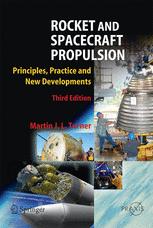

Most ebook files are in PDF format, so you can easily read them using various software such as Foxit Reader or directly on the Google Chrome browser.
Some ebook files are released by publishers in other formats such as .awz, .mobi, .epub, .fb2, etc. You may need to install specific software to read these formats on mobile/PC, such as Calibre.
Please read the tutorial at this link: https://ebookbell.com/faq
We offer FREE conversion to the popular formats you request; however, this may take some time. Therefore, right after payment, please email us, and we will try to provide the service as quickly as possible.
For some exceptional file formats or broken links (if any), please refrain from opening any disputes. Instead, email us first, and we will try to assist within a maximum of 6 hours.
EbookBell Team

5.0
48 reviewsThe revised edition of this practical, hands-on book discusses the range of launch vehicles in use today throughout the world, and includes the very latest details of some of the advanced propulsion systems currently being developed. The author covers the fundamentals of the subject, from the basic principles of rocket propulsion and vehicle dynamics through the theory and practice of liquid and solid propellant motors, to new and future developments.
The revised edition will stick to the same principle of providing a serious exposition of the principles and practice of rocket propulsion, but from the point of view of the user and enquirer who is not an engineering specialist. Most chapters will remain substantially the same as the first edition; they will be updated where necessary and errata corrected. The main revisions will be to the chapter on electric propulsion where there have been significant new developments both in engine types and in practical applications. This is now seen as the key to planetary exploration by robotic probes and should therefore be reflected. Nuclear propulsion has emerged from the doldrums and is now seen as a definite possibility for outer solar system robotic exploration; and as enabling technology for a human mars expedition. A new chapter on nuclear thermal propulsion has been added to reflect this revival of interest.